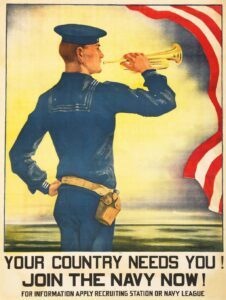
By Gerald L. Maatman, Jr. and Jennifer A. Riley
Duane Morris Takeaway: In the first half of 2024, across all major types of class actions, courts issued rulings on 203 motions to grant or deny class certification, and plaintiffs succeeded in obtaining or maintaining certification in 138 rulings, with an overall success rate of 68%. In contrast, in 2023, the plaintiffs’ class action bar succeeded in certifying class actions at a higher rate. Across all major types of class actions, courts issued rulings last year on 451 motions to grant or to deny class certification. Of these, plaintiffs succeeded in obtaining or maintaining certification in 324 rulings, an overall success rate of 72%. In 2022, by comparison, courts issued rulings on 335 motions to grant or to deny class certification, and plaintiffs succeeded in obtaining or maintaining certification in 247 rulings, an overall success rate of nearly 74%.
In 2024, the number of motions that courts considered varied significantly by subject matter area, and the number of rulings varied across substantive areas.
The following list summarizes the results in each of ten key areas of class action litigation:
WARN – 100% granted / 0% denied (1 of 1 granted / 0 of 1 denied)
FLSA / Wage & Hour (Conditional Certification) – 84% granted / 16% denied (68 of 81 granted / 13 of 81 denied)
Antitrust – 80% granted / 20% denied (8 of 10 granted / 2 of 10 denied)
FCRA / FDCPA – 75% granted / 25% denied (3 of 4 granted / 1 of 4 denied)
Securities Fraud – 67% granted / 33% denied (10 of 15 granted / 5 of 15 denied)
ERISA – 67% granted / 33% denied (10 of 15 granted / 5 of 15 denied)
Discrimination – 60% granted / 40% denied (6 of 10 granted / 4 of 10 denied)
Privacy – 60% granted / 40% denied (3 of 5 granted / 2 of 5 denied)
FLSA / Wage & Hour (Decertification) – 33% granted / 67% denied (3 of 9 granted / 6 of 9 denied)
Civil Rights – 48% granted / 52% denied (10 of 21 granted / 11 of 21 denied)
Consumer Fraud – 48% granted / 52% denied (12 of 25 granted / 13 of 25 denied)
Data Breach – 33% granted / 67% denied (1 of 3 granted / 2 of 3 denied)
Products Liability / Mass Torts – 0% granted / 100% denied (0 of 1 granted / 1 of 1 denied)
TCPA – 0% granted / 100% denied (0 of 3 granted / 3 of 3 denied).
The plaintiffs’ class action bar obtained the highest rates of success in WARN, wage & hour, antitrust, and FCRA class actions. There has only been one WARN certification ruling in 2024, which was granted by the court for a 100% success rate. In wage & hour litigation, plaintiffs succeeded in obtaining orders certifying classes and/or collective actions in 68 of 81 rulings issued during 2024, a success rate of 84%. In cases alleging antitrust violations, plaintiffs succeeded in obtaining orders certifying classes in 8 of 10 rulings, for a success rate of 80%. And in cases alleging FCRA violations, plaintiffs managed to obtain class certification rulings in 3 of 4 rulings issued during 2024, a success rate of 75%.
Courts Issued More Rulings In FLSA Collective Actions and Wage & Hour Class Actions Than In Any Other Areas Of Law
For the first half of calendar year 2024, courts again issued more certification rulings in FLSA collective actions and wage & hour class actions than in other types of cases. Plaintiffs historically have been able to obtain conditional certification of FLSA collective actions at a high rate, which surely has contributed to the number of filings in this area.
From January 1 to July 1, 2024, courts considered more motions for certification in FLSA matters than in any other substantive area. Overall, courts issued 90 rulings. Of these, 81 addressed first-stage motions for conditional certification of collective actions under 29 U.S.C. § 216(b), and 9 addressed second-stage motions for decertification of collective actions. Of the 81 rulings that courts issued on motions for conditional certification, 68 rulings favored plaintiffs, for a success rate of nearly 84%.
These numbers are higher than the numbers observed in 2023, during which courts issued 183 rulings. Of these, 165 addressed first-stage motions for conditional certification of collective actions under 29 U.S.C. § 216(b), and 18 addressed second-stage motions for decertification of collective actions. Of the 167 rulings that courts issued on motions for conditional certification, 125 rulings favored plaintiffs, for a success rate of nearly 75%.
At the decertification stage, courts generally have conducted a closer examination of the evidence and, as a result, defendants historically have enjoyed an equal if not higher rate of success on these second-stage motions as compared to plaintiffs.
The results so far in 2024 have not supported that typical success. Of the 9 rulings that courts issued on motions for decertification of collective actions, only 3 rulings favored defendants, for a lower success rate of 33%.
An analysis of the rulings demonstrates that a disproportionate number emanated from traditionally pro-plaintiff jurisdictions, including the judicial districts within the Second Circuit (16 decisions) and Ninth Circuit (10 decisions), which include New York and California, respectively.
Takeaways From The Numbers Midway Through 2024
Notable this year at the halfway point, there have been a very small number of rulings emanating from the Fifth and Sixth Circuits (4 and 7 decisions, respectfully), which could account for the high overall conditional certification rate in the wage & hour space, given that these two circuits have imposed new, stricter standards for conditional certification. Plaintiffs likely are shifting their case filings away from these two circuits toward jurisdictions with more lenient, more plaintiff-friendly standards for conditional certification.
The numbers no doubt flow from the different standards and approaches that courts in different federal circuits take in evaluating motions for conditional certification and decertification and, in turn, the likelihood of plaintiffs’ success on such motions. If more courts join the Fifth and Sixth Circuits in abandoning the traditional two-step certification process under 29 U.S.C. § 216(b), and thereby increase the time and expense of gaining a conditional certification order, it may lead to a reshuffling of the deck in terms of where plaintiffs file their cases and the types of claims they pursue.
We will continue to track class certification trends in 2024 and will report on final numbers in the Duane Morris Class Action Review – 2025, which will be published in the first week of January. Stay tuned!











